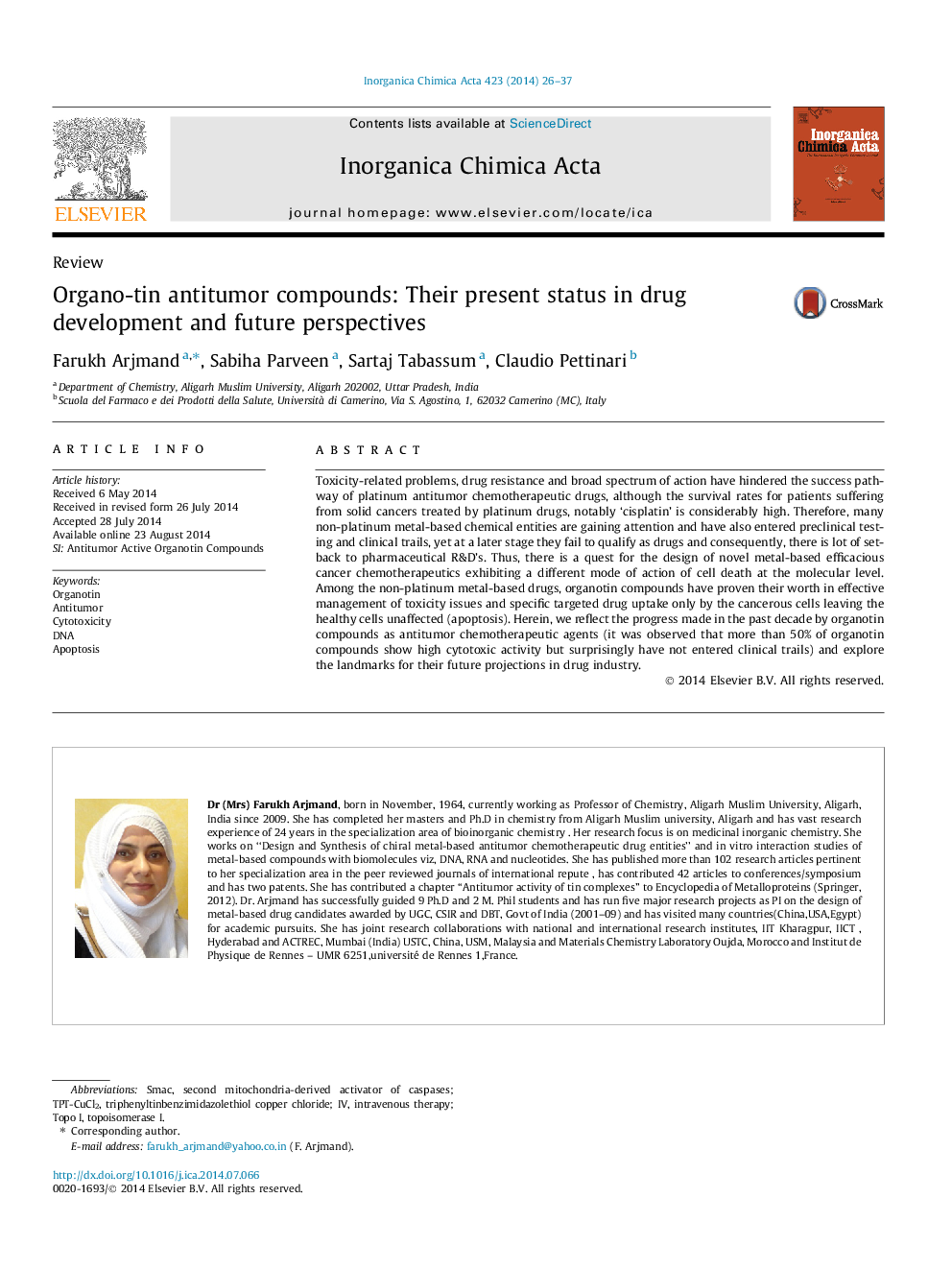| کد مقاله | کد نشریه | سال انتشار | مقاله انگلیسی | نسخه تمام متن |
|---|---|---|---|---|
| 1309339 | 975204 | 2014 | 12 صفحه PDF | دانلود رایگان |
• Sn(IV) compounds exhibit substantial binding to the phosphodiester backbone of DNA.
• Lipophilicity/hydrophilicity of compound plays a vital role in cytotoxic activity.
• Organotins can affect the structural and functional selectively.
• Diorganotin compounds are considered as the ultimate cytotoxic agents.
Toxicity-related problems, drug resistance and broad spectrum of action have hindered the success pathway of platinum antitumor chemotherapeutic drugs, although the survival rates for patients suffering from solid cancers treated by platinum drugs, notably ‘cisplatin’ is considerably high. Therefore, many non-platinum metal-based chemical entities are gaining attention and have also entered preclinical testing and clinical trails, yet at a later stage they fail to qualify as drugs and consequently, there is lot of setback to pharmaceutical R&D’s. Thus, there is a quest for the design of novel metal-based efficacious cancer chemotherapeutics exhibiting a different mode of action of cell death at the molecular level. Among the non-platinum metal-based drugs, organotin compounds have proven their worth in effective management of toxicity issues and specific targeted drug uptake only by the cancerous cells leaving the healthy cells unaffected (apoptosis). Herein, we reflect the progress made in the past decade by organotin compounds as antitumor chemotherapeutic agents (it was observed that more than 50% of organotin compounds show high cytotoxic activity but surprisingly have not entered clinical trails) and explore the landmarks for their future projections in drug industry.
This review article summarizes the progress made by organotin compounds as antitumor chemotherapeutic drug candidates and thereby, explores the landmarks for their future projections in drug industry. The detailed mechanism by which organotins trigger apoptosis in response to the DNA damage is not yet clear, but it is widely accepted that cellular stress can induce the activation and stabilization of tumor suppressor p53 gene, resulting in the cell cycle arrest and/or apoptosis.Figure optionsDownload as PowerPoint slide
Journal: Inorganica Chimica Acta - Volume 423, Part B, 1 November 2014, Pages 26–37
